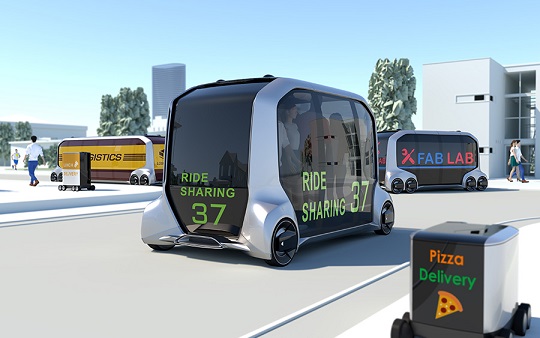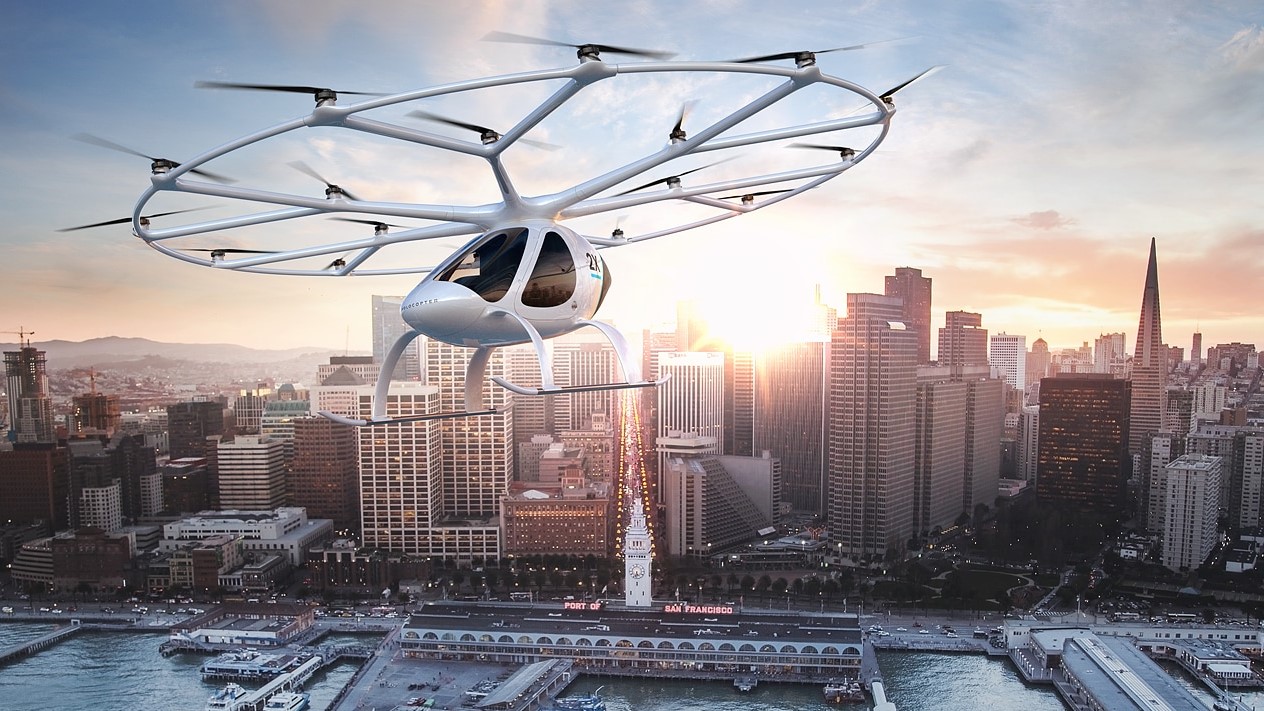Big advances in quantum computing, an autonomous flying taxi, a driverless car for businesses were among some of the many high-tech offerings unveiled at CES last week.
The Consumer Electronics Show, taking place over a week in Las Vegas, is the world’s biggest consumer technology conference, and each year sees some of the biggest companies in the world displaying the gadgets and tools of the future.
This year’s event saw Intel unveil a series of new products, as the tech giant aims to move the conversation away from the critical vulnerabilities recently discovered in its computer chips.
The company revealed that it has developed one of the fastest quantum computing chips in the world. The new 49-qubit chip will “allow researchers to assess and improve error correction techniques and simulate computational problems,” Intel CEO Brian Krzanich said.
It’s a big development for worldwide quantum computing, despite IBM having announced late last year that it had built a 50-qubit prototype. Dubbed Tangle Lake after the Alaskan lakes, due to the chips needed for cold temperatures and an entangled state, the new qubit is another step in Intel’s goal of developing a complete quantum computing system.
“In the quest to deliver a commercially viable quantum computing system, it’s anyone’s game,” Intel Labs managing director Mike Mayberry said.
“We expect it will be five to seven years before the industry gets to tackling engineering-scale problems, and it will likely require one million or more qubits to achieve commercial relevance.”
Intel also displayed its own autonomous flying drone that it said would operate much like a taxi. The Volocopter 2X, developed by German company Volocopter in partnership with Intel, has room for two people, and can fly for up to half an hour at the moment.
“Fifty-five years ago the TV show The Jetsons first aired and showed us a future where flying cars were a part of everyday life,” Krzanich said.
“We’re on the cusp of making that a reality. Imagine pulling out your phone, opening up a transportation app and summoning your own personalised ride by air taxi. That sci-fi vision of the future is actually much closer than you may think.”
Autonomous vehicles were a major drawcard at the conference, with Toyota also unveiling its own offering. The e-Palette is a fully automated electric vehicle utilising the company’s autonomous technology, that is flexible and can be purpose-built for ridesharing, delivery, retail or any other business possibility.

The Toyota e-Palette concept
The company also announced a new alliance that is a “broad-based ecosystem of hardware and software support designed to help a range of companies utilise advanced mobility technology to better serve customers,” including Amazon, Uber and Pizza Hut.
“The automobile industry is clearly amidst its most dramatic period of change as technologies like electrification, connected and automated driving are making significant progress,” Toyota president Akio Toyoda said.
“We are developing mobility solutions to help everyone enjoy their lives, and we are doing our part to create an ever-better society for the next 100 years and beyond. This announcement marks a major step forward in our evolution towards sustainable mobility, demonstrating our continued expansion beyond traditional cars and trucks to the creation of new values including services for customers.”
At CES, HTC also produced its new Vive Pro headset with integrated audio and high resolution, while Design Partners displayed its “smart glove”, lending some much needed physical sensation to virtual reality.
Other more novel gadgets and technologies on display at the conference included a Scrabble-playing robot, an IoT animal door, and underwear that protects your private parts from radiation.










